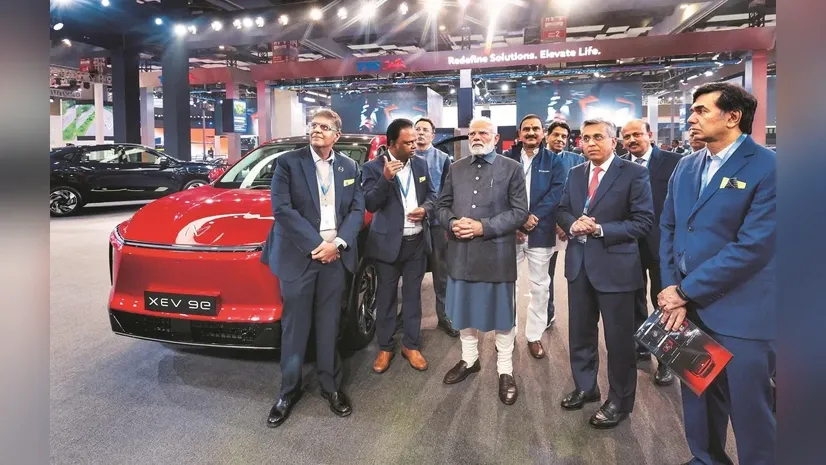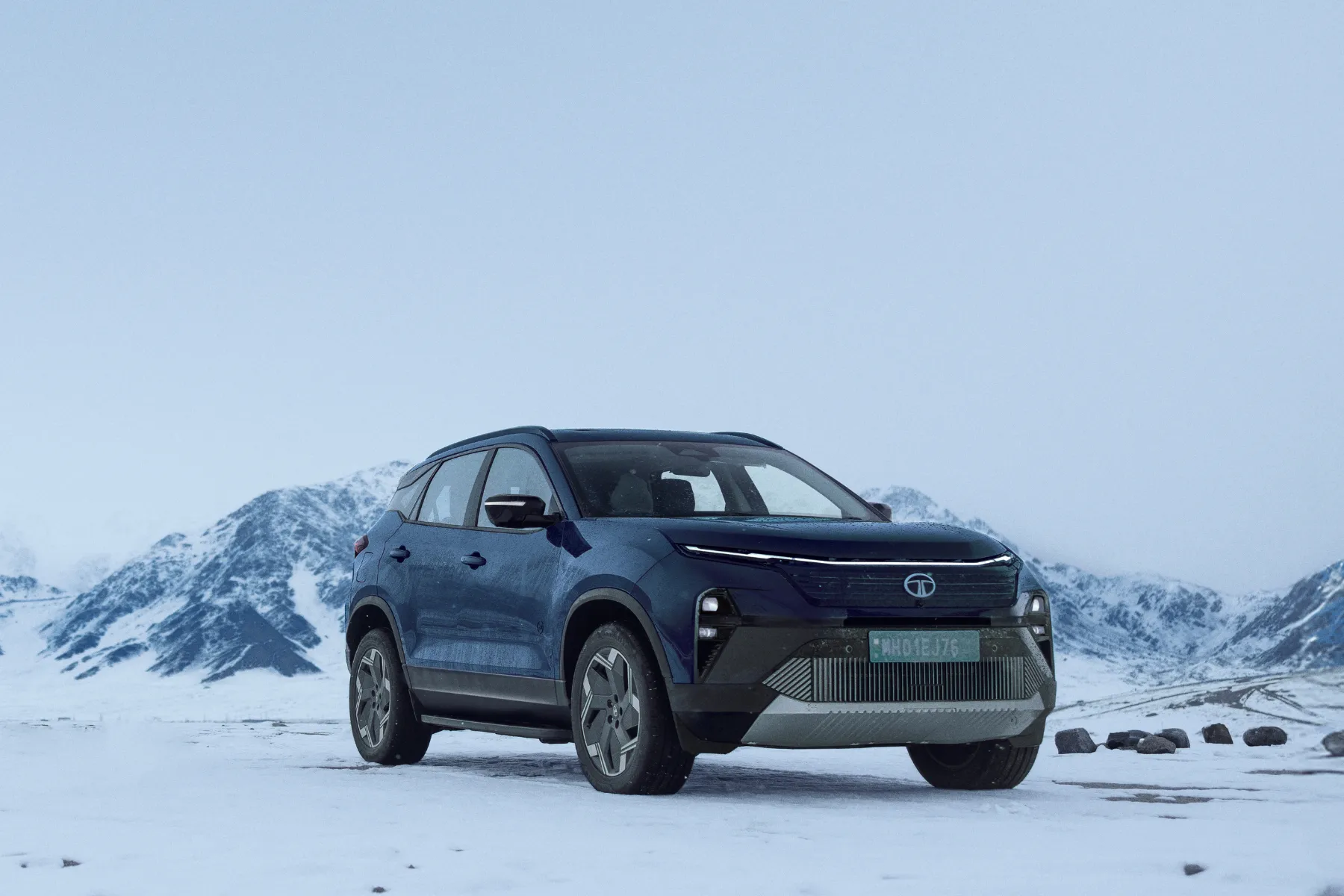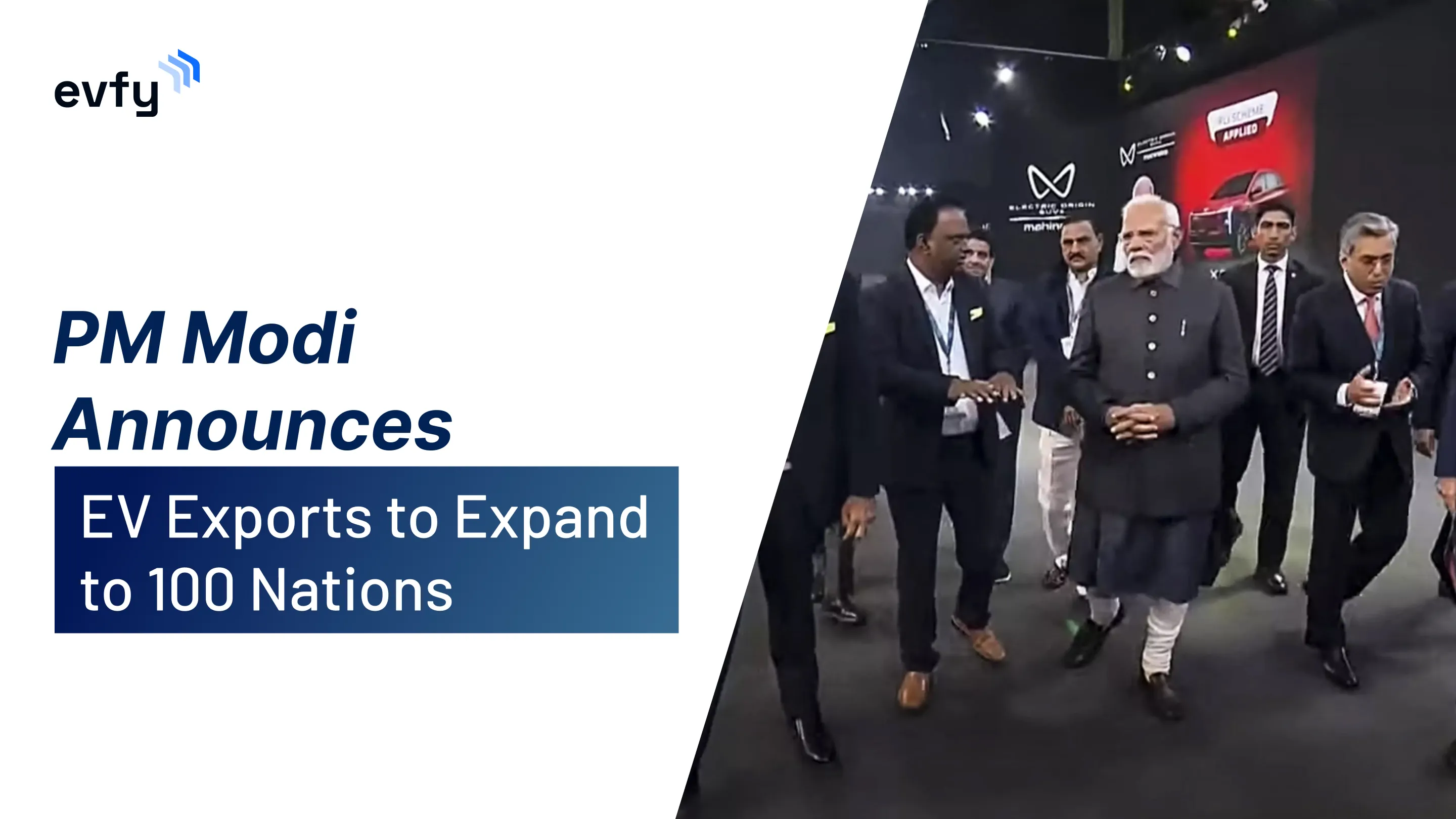Quick Highlights:
- PM Modi announced India’s plan to export EVs to 100 nations.
- First official number set for India’s EV export ambitions.
- India’s auto exports doubled in the past decade, reaching ₹1.2 lakh crore.
- Government to unveil a special EV export program on August 26, 2025.
- Focus on home-grown innovation over “imported research.”
- Automakers urged to invest in R&D, design, and global quality standards.
PM Modi Announces EV Exports to Expand to 100 Nations
Prime Minister Narendra Modi has officially set India’s electric vehicle (EV) industry on a global course by announcing plans to export EVs to 100 nations. The declaration, made at the ET World Leaders Forum 2025, marks a historic milestone for the Indian automotive sector and positions the country as a global player in clean mobility.

For the first time, the government has put a concrete figure on India’s EV export ambitions, sending a clear signal that domestic automakers must align with international opportunities. The announcement comes at a time when Indian automakers are accelerating their global strategies, and the government is expected to unveil a dedicated program on August 26, 2025, to support the initiative.
Auto Exports: A Decade of Growth
India’s automotive exports have already witnessed robust growth over the past ten years. From around ₹50,000 crore in 2014, the figure has more than doubled to ₹1.2 lakh crore today. This success provides the foundation for the next phase — EV exports — which are seen as the logical extension of India’s journey from being a domestic manufacturing hub to a global supplier of sustainable mobility solutions.
The EV export strategy is not just about numbers but about sending a strong message: India is ready to compete and collaborate on the world stage in clean technology.

Home-Grown Innovation at the Core
In his speech, PM Modi highlighted the importance of innovation that originates within the country. He cautioned against over-reliance on “imported research,” stating that while international expertise may offer short-term support, it is India’s own research ecosystem that will determine its long-term success.
“Our aspirations cannot run on borrowed knowledge,” Modi emphasized. “Urgency and focus are essential, and policies are being continuously shaped to empower Indian researchers and innovators.”
This approach aligns with the government’s broader push to strengthen India’s manufacturing ecosystem under initiatives such as “Make in India” and “Atmanirbhar Bharat.”
Opportunities and Challenges for Automakers
The announcement opens new doors for automakers already engaged in global operations, offering them a tailwind through policy support and international positioning. For other manufacturers, however, the shift will require significant investment in research, design, and quality control to meet international standards.
Industry experts suggest that companies will need to focus on battery technology, vehicle efficiency, safety standards, and sustainable manufacturing practices to successfully penetrate overseas markets. The export push is expected to create pressure but also tremendous opportunities for Indian companies willing to adapt and innovate.

Beyond Numbers: A Global Signal
More than a target, India’s EV export plan is a statement of intent. As Modi put it, strong fundamentals allow India to “redirect fast-flowing currents.” For the automotive industry, this means aligning with global trends in electrification while maintaining India’s competitive advantage in cost, scale, and engineering talent.
The upcoming special program on August 26 is expected to provide clarity on incentives, infrastructure support, and partnerships that will drive this global ambition forward. If successful, India could emerge as one of the largest suppliers of electric mobility solutions to both developing and developed nations.

Conclusion
India’s EV export expansion to 100 nations marks the beginning of a new chapter in the country’s automotive journey. Backed by rapid growth in auto exports, a strong focus on local innovation, and the government’s policy framework, the industry is poised to make India a key player in the global transition to sustainable transport.
For automakers, the challenge is to keep pace with this momentum and ensure that India’s electric mobility story resonates across international markets.


